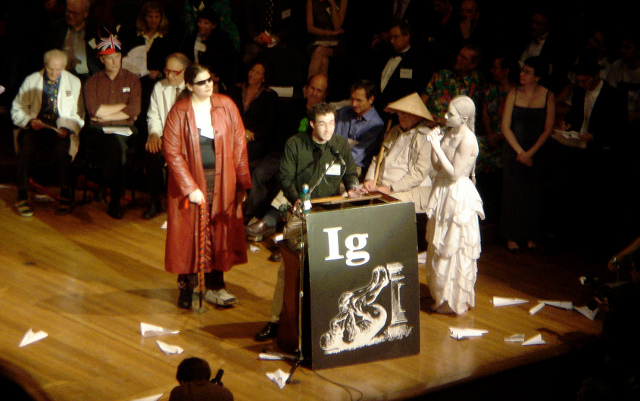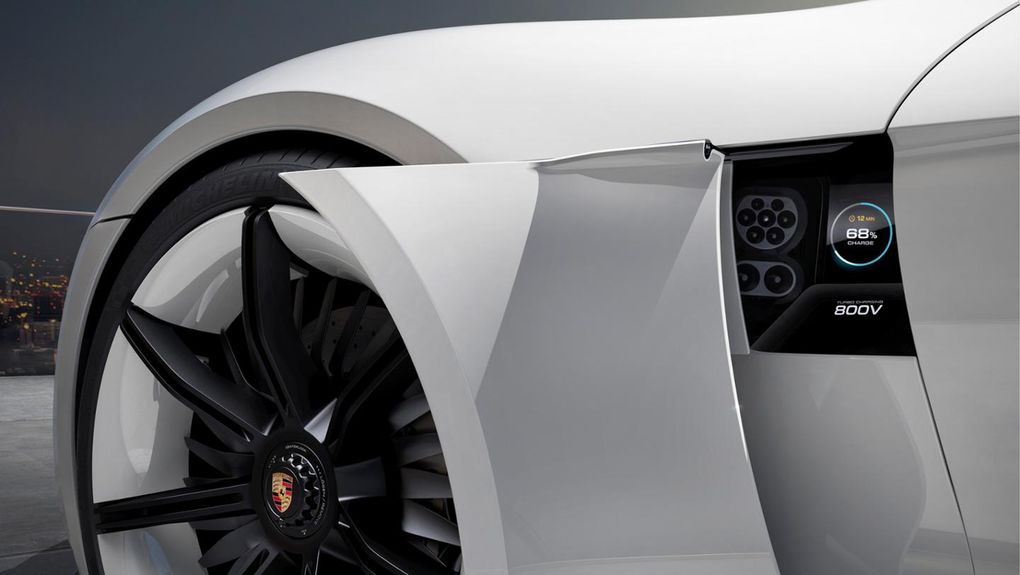
Enceladus’s Global Ocean
Nothing is as cool as independent verification, when two people or teams come up with the same answer to a question via different lines of reasoning. That’s what happened when we discovered that the universe’s expansion was speeding up, and it’s what’s just happened to people studying Saturn’s moon Enceladus. First, the Cassini probe took gravitational data during a few close passes that suggested there might be a body of water beneath the ice that covered the whole moon. Now, independent analysis of pictures Cassini took show it wobbling in its orbit in a way that only makes sense if it has a global ocean beneath the surface. Check out the JPL press release or Gizmodo for more.

IgNobel prizes
The Annals of Improbable Research held their annual IgNobel Prize ceremony this week, awarding unusual research (that still makes a point). Among the winners were scientists who (among other things):
- unboiled an egg
- figured out how long it takes mammals to pee
- paid policemen not to take bribes
- calculated whether a man could really sire 888 children, and
- attached a stick to the back end of a chicken to see how dinosaurs walked
Check out the BBC report or the awards site itself to see the full list of winners.

Feedback
According to a DARPA press release this week, scientists have managed to make it possible for a paralyzed man to feel again, even determining with near 100% accuracy which finger was being touched. By implanting electrode arrays in the 28-year-old man’s sensory and motor cortexes, a team of engineers working at the Applied Physics Laboratory at Johns Hopkins University were able to give the man mental control over a prosthetic arm as well as sensory feedback. “The feeling,” the report “was as if his own hand were being touched.” It’s really news that speaks for itself. Check out the press release here.

Mission E
Porsche is (thinking of) trying to beat Tesla at its own game. Announced this week at a conference that was mostly about the new 911, the all-electric sports car’s numbers sound great: zero to sixty in under 3.5s, over 300 miles per charge, 80% recharge in 15 minutes. Sounds too good to be true — and it is, for now. The Mission E is only a concept, but one I’m hoping they’ll pursue. Except for the weird face-watching part. That’s creepy. Read about it over at Porsche, or in condensed form over at The Verge.
ICYMI
This week started off with me trying to do an impression of the ultimately inimitable Mallory Ortberg from The Toast; on Tuesday I wrote about Valentina Tereshkova, the first woman in space; on Wednesday, I announced Ledger, the first journal devoted to Bitcoin and other cryptocurrencies; on Thursday I talked about the morals of the impending sexbot revolution; and on Friday, Lindsey pointed out that the Republican candidates can’t think of any women to put on the $10 bill. If you haven’t read them, go check them out!
Best of the Rest
Here’s some other things that happened this week!
- A retired lieutenant-colonel in the USAF explains how Lockheed Martin’s “skunkworks” got into the stealth fighter business
- Dr. Stephen Novella explains that fibromyalgia is real, but that there are caveats
- Chris Mills explains why the winning the copyright lawsuit about the baby dancing to Prince on YouTube is a big deal over at Gizmodo, and
- BBC streaming is coming (officially) to America
I leave you now with a video by Hank Green (who’s just awesome) about Nuking Mars (and why you might not want to, Elon Musk).
That’s all for today. Don’t forget to follow us on Twitter and like us on Facebook, and have a great week.
